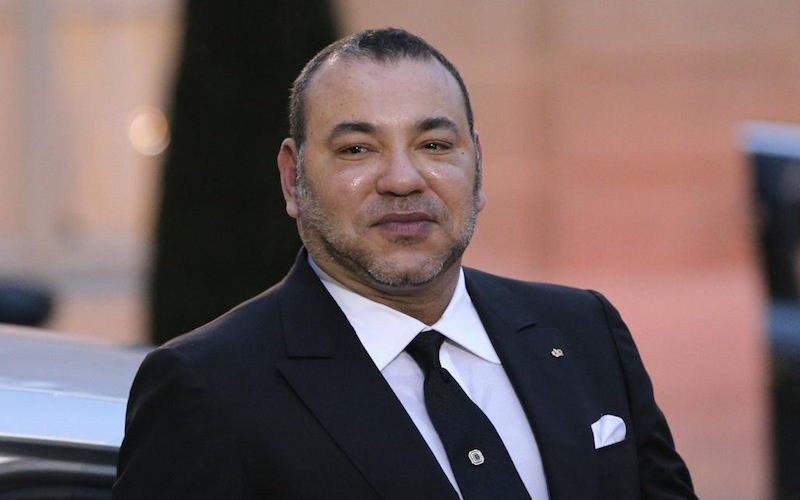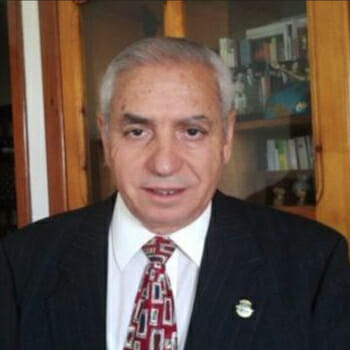
Moroccan Electoral Duel: Islamists vs. Royalists
The Moroccan monarchy, which dates as far back as the 8th century, has traditionally been above the fray of mundane, partisan politics.
But, following independence in 1956, when the monarchy felt threatened, it descended into the political arena to defend itself and ward off any existential threats. The very first instance of this was in 1963 when the newly-crowned king Hassan II was met by formidable resistance and animosity from the new splinter party, Union Nationale des Forces Populaires, and especially by its Machiavellian-like politician and potent leader Mehdi Ben Barka.
The Front de Défense des Institutions Constitutionnelles (FDIC) was founded in 1963 by an advisor and close friend of the King Hassan II and the leadership was granted to Ahmed Bahnini, another trusted handyman. The general elections that ensued the same year were rigged according to the opposition, the socialist UNFP and the nationalist Istiqlal Party (Independence Party). The FDIC won 69 parliamentary seats out of a total of 144 and its leader Bahnini became Prime Minister, although Reda Guedira ruled the country single-handedly .
The party, royalist in politics and liberal in economics, was founded not to defend the institutions per se, but the monarch whose life and existence was threatened by, his once upon a time close friend, the leftist Ben Barka. Morocco descended into total ebullition, as threats came from Algeria and Marxist-Leninist organizations both internally and externally.
Mehdi Ben Barka, founder of the left-wing UNFP and Secretary General of the leftist Tricontinental Conference, was accused of plotting to overthrow Hassan II and was condemned to death in 1963. Immediately after, he was smuggled out of Morocco and “disappeared” in Paris in 1965, where he was feared to have been abducted and executed by a number of countries which did not favor his revolutionary agenda. The French historian Jean Lacouture branded him as: “travelling salesman of the revolution.” In 1970, as the threat to the monarchy subsided the FDIC party was dissolved as if nothing had happened.
The second instance of royal mingling in partisan politics occurred when the monarchy felt the threat of Islamists in the early third millennium in the Muslim world. The monarchy reacted swiftly by first creating a think-tank called “Mouvement de Tous les Démocrates” (Movement of All Democrats) which evolved into a royalist political party called “Parti Autenticité et Modernité” –PAM, founded in 2008 by Fouad El Himma, Mohammed VI’s advisor and close friend.
The move by the palace was clever, timely and visionary as the Islamists gained popularity and momentum in the Arab world.
The Islamist Spring
The Arab Spring, which began in 2011, was initiated by disgruntled youth dehumanized by patriarchal and tribal Arab dictatorships but lacked political skills. Building on the lack of political experience of youth, the Islamists easily took over the political outcome of the uprisings and thanks to their regimented instinct and powerful religious narrative both Tunisia and Egypt fell.
To mar the surge of Islamists, the Parti de la Justice et du Développement (PJD), was created in 1998. In 2011, Mohammed VI produced a new constitution that was adopted by a referendum held on July 1, 2011, curtailing some of his massive executive powers and paving the way for the Islamist arrival to power on November 2011 under the leadership of Abdelilah Benkirane.
Mohammed VI move was very clever and nimble. By proposing constitutional reforms he defused the tension created by the Arab Spring Moroccan protest movement: “Mouvement du 20 Février” (20th February Movement) which was led mostly by “al-‘Adl wa al-Ihsane” (Justice and Spirituality), a potent Islamist opposition party and, instead, brought to the forefront a moderate Islamist party namely the PJD to ride the storm of the Arab Spring, which he craftily executed with much success.
What now?
The general elections are slated to happen next October and in preparation the militants of the Islamist party, PJD, have renewed their trust in the secretary general of the party, Abdelilah Benkirane, who is the actual head of the government. The latter defiantly declared to the press that they are going to win the October general elections and come back to power easily. Will they?
It is true they are very popular among the grass roots, not for their accomplishments during their tenure, but because of their religious narrative and military-like discipline and support within the mosque network and NGOs among the have-nots in the cities which was clearly demonstrated during the 2015 municipal elections.
However, the Makhzen, this time, will, more likely, favor his own party, the PAM, to win these elections and head the government. Will it rig the elections to get the hoped for result? The establishment will certainly not resort to that, for the simple reason that the international contestation of the results that will ensue will reflect on the monarchy and give more credence and legitimacy to the Islamists.
Instead of deceit and perjury, the Makhzen will make use of incentives (carrots) in its material and power formats to win the elections for the party, the PAM. How? The establishment will enlist the multitude of medium and small size administrative parties and direct them to vote for the palace party, and reward them, as a result, with cash handouts and other financial incentives. Furthermore, the palace will offer juicy ministerial portfolios to the leaders of the democratic parties like the socialist, Union Socialiste des Forces Populaires –USFP- and the nationalist Istiqlal Party (Independence Party) and entice them into a government coalition to give the palace party more credence nationally and internationally.
Clearly the Islamist time is over for now because since they came to power, critics believe they have been listening and executing the directives of the World Bank to please Western nations more than meeting the needs of the population at large. This has led to general discontent which the Makhzen will use to justify the PJD general elections in the debacle to come.
Final word
One of the secrets of the longevity of the monarchy in Morocco is its magical recipe of political manipulation through a form of power-sharing whereby all political forces will have a share of the cake as long as they accept the preeminence of the monarchy. And apart from al-Adl aw al-Ihsane Islamist party, all other political groups play the game of the establishment willingly for personal gain, as it were.

